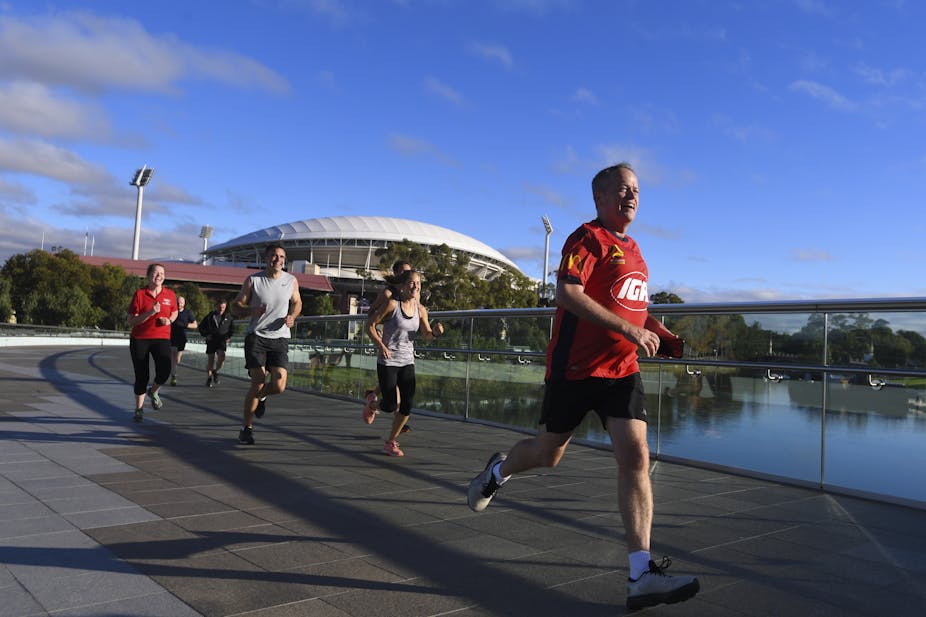Bill Shorten has promised Labor will commit $500 million over five years to the United Nations High Commissioner for Refugees in a policy designed simultaneously to reassure voters and satisfy the party on the politically sensitive issue of border protection.
This was among proposed new measures on asylum seeker policy the opposition leader announced to the ALP national conference on Monday morning, preempting a debate later in the day, to ensure internal party differences were minimised.
He said the $500 million would directly improve orderly regional processing and resettlement in the region and countries closer to where refugees originally came from. The funding would “speed up legitimate settlement pathways - it will deny people smugglers a product to sell”.
Portraying Labor as tough on borders, but humanitarian on refugees, Shorten said that if he became prime minister, he would take immediate advice from the chief of the Australian Defence Force, the Home Affairs Department, ASIO and other agencies about Australia’s state of preparedness to disrupt people smuggling operations before people departed.
Labor would triple the number of Australian Federal Police working overseas to stop people smugglers and prevent people even contemplating getting on boats.
An ALP government would expand the existing community sponsored refugee program from the current number of 1,000 to 5,000.
“This means state and local governments, community organisations, businesses and unions and faith-based institutions will be able to sponsor humanitarian entrants into Australia and support the economic and social integration of refugees into communities,” Shorten said.
He said the expansion would be in addition to Australia’s existing humanitarian intake, so a Labor government would take more refugees overall as part of its migration mix.
Shorten reaffirmed Labor’s commitment to turnbacks and offshore processing, saying “it is not a crime to want to come to this country. But it is a crime to exploit vulnerable people to put them in dangerous and unsafe vessels and have them drown at sea”.
“We cannot, we must not, and we will not permit the reopening of their trade in human desperation and the drownings and the irreplaceable loss of life that it brings.”
This required pursuing regional resettlement, turning back boats when it was safe to do so and maintaining offshore processing.
“But also … we understand that keeping our borders secure, and keeping people smugglers out of business should and never has meant leaving women and children to languish for years and years in indefinite detention in sub-standard facilities and unacceptable conditions”
“It has never meant allowing peoples’ mental and physical health to deteriorate whilst under direct or indirect Australian care. It has never meant fighting every step of the way against medical advice which says that more needs to be done to treat people”
“I believe that Australia can meet our international humanitarian and legal responsibilities without compromising our national security for a commitment to strong border protection,” Shorten said.
A Labor government would take up New Zealand’s offer to resettle refugees from Manus and Nauru by immediately negotiating an agreement on similar terms to the current deal with the United States.
In a counter attack against the Coalition, which is running hard on the ALP being soft on borders, Shorten accused the government of “telling lies about Labor” and thereby “doing the dirty work of the people smugglers.
"The Liberals are acting as spruikers for the criminal syndicates. Every time they get up and say that there will be a change in terms of border security, they are signalling criminal syndicates to try their hand again.
"They should be ashamed, they know what they do and they still do it.”

